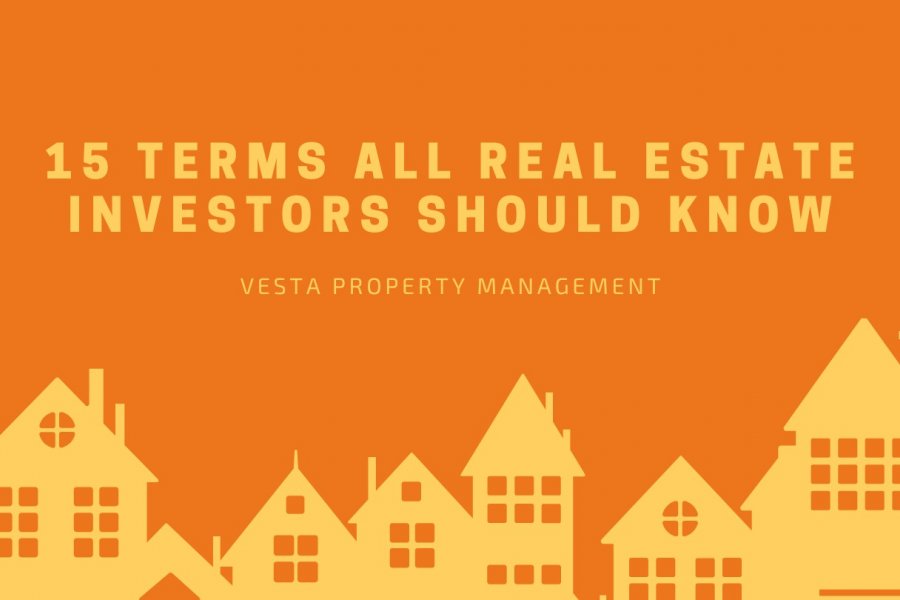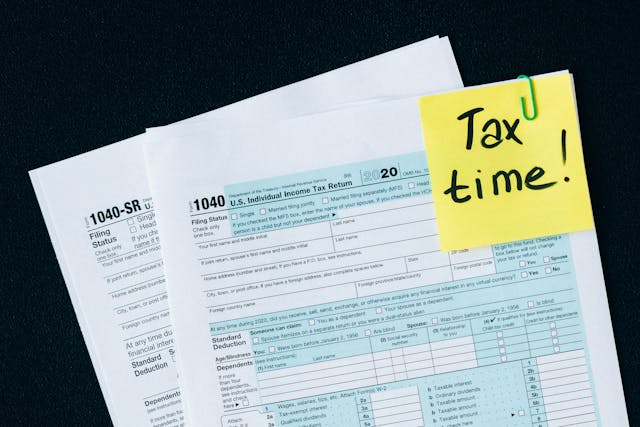
- Understanding the Lingo is Crucial: Grasping terms like amortization, cap rate, and cash-on-cash return empowers you to make informed decisions and communicate effectively in the real estate world.
- Use Tools Like CMA: A Comparative Market Analysis helps you price properties accurately, ensuring competitiveness whether you're buying, selling, or renting.
Are you confident that you fully understand the real estate terms that can make or break your investment decisions? As a landlord, keeping up with the language of the industry can be a challenge, but it's crucial to ensure you're making informed choices that protect your assets.
Knowing the right terms not only helps you communicate effectively with other investors but also helps you navigate the complex world of property investments with ease.
At Vesta Property Management, serving landlords across Virginia, we understand how important it is to stay ahead of the curve. In this article, we'll break down 17 essential terms every real estate investor should know, empowering you with the knowledge to take your investments to the next level.
Learn How We Can Help You Maximize Your Home’s Potential.
Key Terms To Master Real Estate Language
To thrive in the world of real estate investing, understanding industry-specific terms is essential. Below is a list of 17 vital terms that will help you navigate investments confidently and make informed decisions:
1. Amortization:
Amortization refers to the process of gradually paying off a loan over time through scheduled payments. Each payment covers both interest and principal. It’s commonly used in mortgages. The amortization formula is:
A=P×r(1+r)^n/(1+r)^n−1A
Where:
A = Monthly payment, P = Loan principal, r = Interest rate per period, n = Number of payments.
2. Appraisal:
An appraisal is an unbiased estimate of a property's market value, conducted by a licensed appraiser. It takes into account factors like location, condition, and recent comparable sales. This helps investors determine if the price is fair, whether buying or selling.

3. Cap Rate:
The capitalization rate, or cap rate, measures the potential return on an investment property. It’s calculated by dividing the property’s net operating income (NOI) by its current market value or purchase price. The formula is:
Cap Rate=NOI/Property Value
This ratio helps investors assess the profitability of a property.
4. Cash Flow:
Cash flow is the amount of money left after all expenses (mortgage, taxes, maintenance) have been paid. Positive cash flow means your property earns more than it costs to maintain, and a negative cash flow indicates a loss. The formula is:
Cash Flow=Rental Income−Expenses
Discover Our Property Management Services!
5. Cash-on-Cash Return:
Cash-on-Cash Return calculates the return on investment based on the actual cash you’ve put into the property. It’s useful for evaluating the profitability of rental properties. The formula is:
Cash-on-Cash Return=(Annual Pre-Tax Cash Flow/Total Cash Invested)×100
This percentage helps assess how much you’re earning relative to your initial investment.
6. Comparative Market Analysis (CMA):
A Comparative Market Analysis (CMA) is a tool real estate agents and investors use to estimate a property’s value by comparing it to similar properties recently sold in the area. A CMA helps landlords set competitive rental rates or make informed buying or selling decisions.
7. Depreciation:
Depreciation is the process by which the value of a property decreases over time, primarily due to wear and tear. For tax purposes, investors can deduct depreciation from their rental income, lowering taxable income. Residential properties are typically depreciated over 27.5 years under the IRS guidelines.

8. Equity:
Equity is the difference between the current market value of your property and the amount you owe on your mortgage. It represents your ownership stake in the property. As property values increase and you pay down the mortgage, your equity grows, giving you more control over the asset.
9. Fixed-Rate Mortgage:
A fixed-rate mortgage is a type of loan where the interest rate remains the same for the full term of the loan, providing predictable monthly payments. This stability makes it easier for investors to budget and plan long-term. The term usually ranges from 15 to 30 years.
10. Gross Rental Income:
Gross rental income is the total income generated from a rental property before any expenses are deducted. This includes rent payments, parking fees, and other charges paid by residents. It’s important for landlords to track this number as it’s the starting point for calculating cash flow and profitability.
Learn How We Help Real Estate Investors Succeed!
11. Housing Affordability Index:
The Housing Affordability Index measures the ability of a typical family to afford a home in a specific market. It compares median home prices to median household income. A higher index means homes are more affordable to residents, while a lower index signals potential challenges for buyers and renters.
12. Leasehold:
Leasehold is a type of property ownership where the buyer owns the right to use the land or property for a set period, but the land itself is leased from another party. Once the lease expires, ownership returns to the landowner.

13. Lien:
A lien is a legal claim on a property by a creditor due to unpaid debts. If the property owner doesn’t pay the debt, the creditor can force the sale of the property to recover the owed money. For landlords, a lien could arise from unpaid property taxes, mortgages, or contractor fees.
14. Net Operating Income (NOI):
Net Operating Income (NOI) is the total income from a rental property after operating expenses, such as property management fees, maintenance, and insurance, but before debt payments and taxes. NOI is a crucial figure for assessing a property’s profitability. The formula is:
NOI = Gross Rental Income- Operating Expenses
Discover the Benefits of Hiring Vesta Property Management!
15. Zoning:
Zoning refers to the local government laws that dictate how properties can be used in specific areas, such as residential, commercial, or industrial zones. For landlords, understanding zoning laws is essential when considering property investments, as it determines what type of development or use is allowed on the land.
Bottom Line
Navigating real estate doesn’t have to be overwhelming. At Vesta Property Management, we specialize in helping Virginia landlords make confident, informed investment decisions. Whether you’re growing your portfolio or just getting started, our experienced team is here to guide you every step of the way. Let’s connect and explore the best strategies for your property investments.